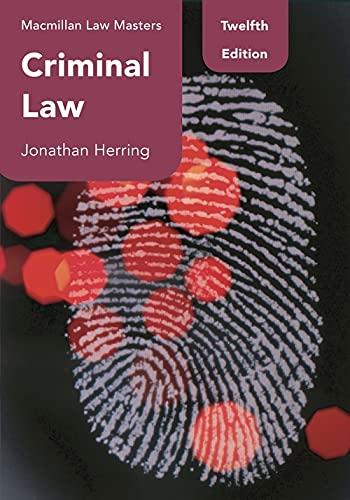Question
A woman had struggled with depression for many years and was under the care of an internist. After being hospitalized for severe depression and alcoholism.
A woman had struggled with depression for many years and was under the care of an internist. After being hospitalized for severe depression and alcoholism. After being discharged from the hospital the internist claimed she no longer needed her medications and to call the office if she felt the depression returning. She did call back 9 months later and spoke with a different internist who prescribed her an anti-depressant over the phone and did not require an office visit but merely said to call later to schedule one. Eight days after receiving the medication, the patient overdosed on the medication and died. Her estate is suing the internist who prescribed the medications saying there was malpractice, and that the internist did not live up to the professional level that he should have. What does the estate have to prove to show malpractice? What did the court say in this case? Was there malpractice and why or why not? Edwards v. Tardif, 692 A.2d 1266 (Conn. 1997).
Step by Step Solution
There are 3 Steps involved in it
Step: 1

Get Instant Access to Expert-Tailored Solutions
See step-by-step solutions with expert insights and AI powered tools for academic success
Step: 2

Step: 3

Ace Your Homework with AI
Get the answers you need in no time with our AI-driven, step-by-step assistance
Get Started


